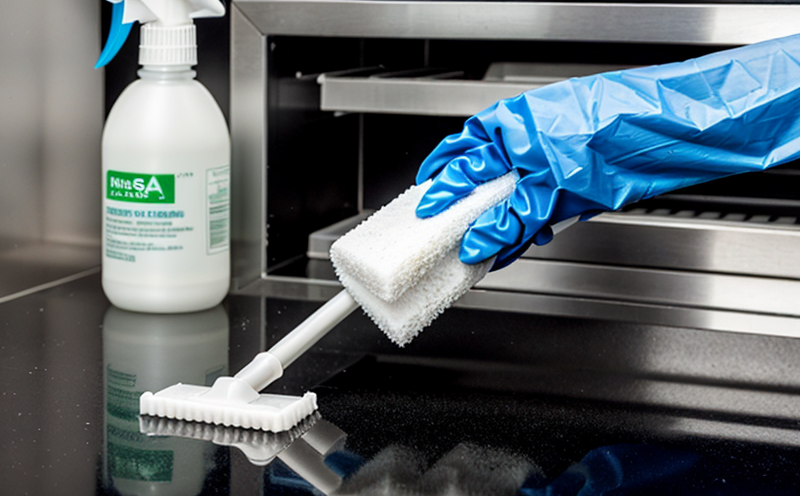EN 13623 Legionella Resistance Testing of Hygiene Plastics
The EN 13623 standard addresses the resistance of hygiene plastics to the proliferation of Legionella bacteria, ensuring that products such as water distribution systems and fittings used in healthcare settings do not become breeding grounds for harmful microorganisms. This test is crucial for manufacturers and quality managers aiming to comply with stringent hygiene regulations across Europe.
The testing method outlined in EN 13623 involves exposing the plastic specimens to controlled conditions that simulate real-world usage, including temperature cycling and water flow rates typical of healthcare facilities. The primary objective is to evaluate whether Legionella bacteria can thrive on the surface of the material under these simulated conditions.
This service is particularly important for polymer and plastics manufacturers who produce products intended for use in environments where hygiene is paramount, such as hospitals, care homes, and laboratories. Compliance with this standard not only ensures product safety but also enhances brand reputation by demonstrating a commitment to high-quality hygiene standards.
The testing process typically involves the following steps:
- Selection of appropriate specimen samples that represent the actual end-product geometry and material composition.
- Cleaning and conditioning the specimens according to specified protocols to ensure uniformity across all test samples.
- Exposure of the specimens to a controlled environment where temperature, humidity, and water quality mimic healthcare facility conditions. This includes exposure to Legionella bacteria under specific growth conditions.
- Monitoring the growth of Legionella on the surface of the specimens over an extended period (typically 28 days).
- Evaluation of the results against predefined acceptance criteria to determine compliance with EN 13623.
The primary outcome of this testing is a report detailing the performance of the material in resisting Legionella growth. This information helps manufacturers make informed decisions about material selection and process improvements, ensuring that their products meet the highest hygiene standards.
EN 13623 compliance is not just about meeting regulatory requirements; it also reflects an ongoing commitment to public health and safety. By adhering to this standard, manufacturers demonstrate their dedication to producing safe and reliable products for healthcare environments.
Applied Standards
| Standard | Description |
|---|---|
| EN 13623-1:2005 | Legionella resistance of hygiene plastics - Part 1: General requirements and test methods. |
| EN 13623-2:2005 | Legionella resistance of hygiene plastics - Part 2: Performance criteria for materials and products. |
The testing method specified in EN 13623 is designed to ensure that the surfaces of hygiene plastics used in healthcare settings are not conducive to the proliferation of Legionella bacteria. This part of the standard outlines the general requirements and test methods necessary for evaluating the resistance of these materials.
Part 2 of the standard provides performance criteria that must be met by materials and products tested under Part 1. Compliance with both parts ensures that the final product not only undergoes rigorous testing but also meets stringent performance standards, thereby enhancing overall safety and reliability.
Quality and Reliability Assurance
The quality and reliability of our EN 13623 Legionella Resistance Testing services are underpinned by state-of-the-art facilities, experienced technical experts, and adherence to international standards. Our laboratory is equipped with the latest testing equipment capable of simulating real-world conditions accurately.
Our team of professionals ensures that every step of the testing process adheres strictly to EN 13623 guidelines, from specimen preparation to monitoring periods and final evaluation. We employ rigorous quality control measures throughout our operations to ensure consistent accuracy and precision in all test results.
The reliability of our service is further enhanced by our commitment to continuous improvement through ongoing training for staff, regular calibration of equipment, and participation in proficiency testing programs recognized internationally. This ensures that we remain at the forefront of best practices in polymer and plastics testing.
Our clients can trust us to deliver accurate, reliable, and consistent results that contribute significantly to their product development processes and regulatory compliance efforts.
Environmental and Sustainability Contributions
- Reduction in the risk of Legionella contamination through rigorous testing ensures safer environments for all users.
- Promotes the use of materials that are inherently resistant to microbial growth, contributing positively to sustainability goals.
- Supports healthcare facilities in meeting their obligations towards patient safety and environmental stewardship.
The EN 13623 Legionella Resistance Testing service plays a pivotal role in enhancing both public health outcomes and sustainable practices within the healthcare industry. By preventing the spread of harmful microorganisms, we help create safer environments that contribute to improved health outcomes while supporting broader sustainability initiatives.





